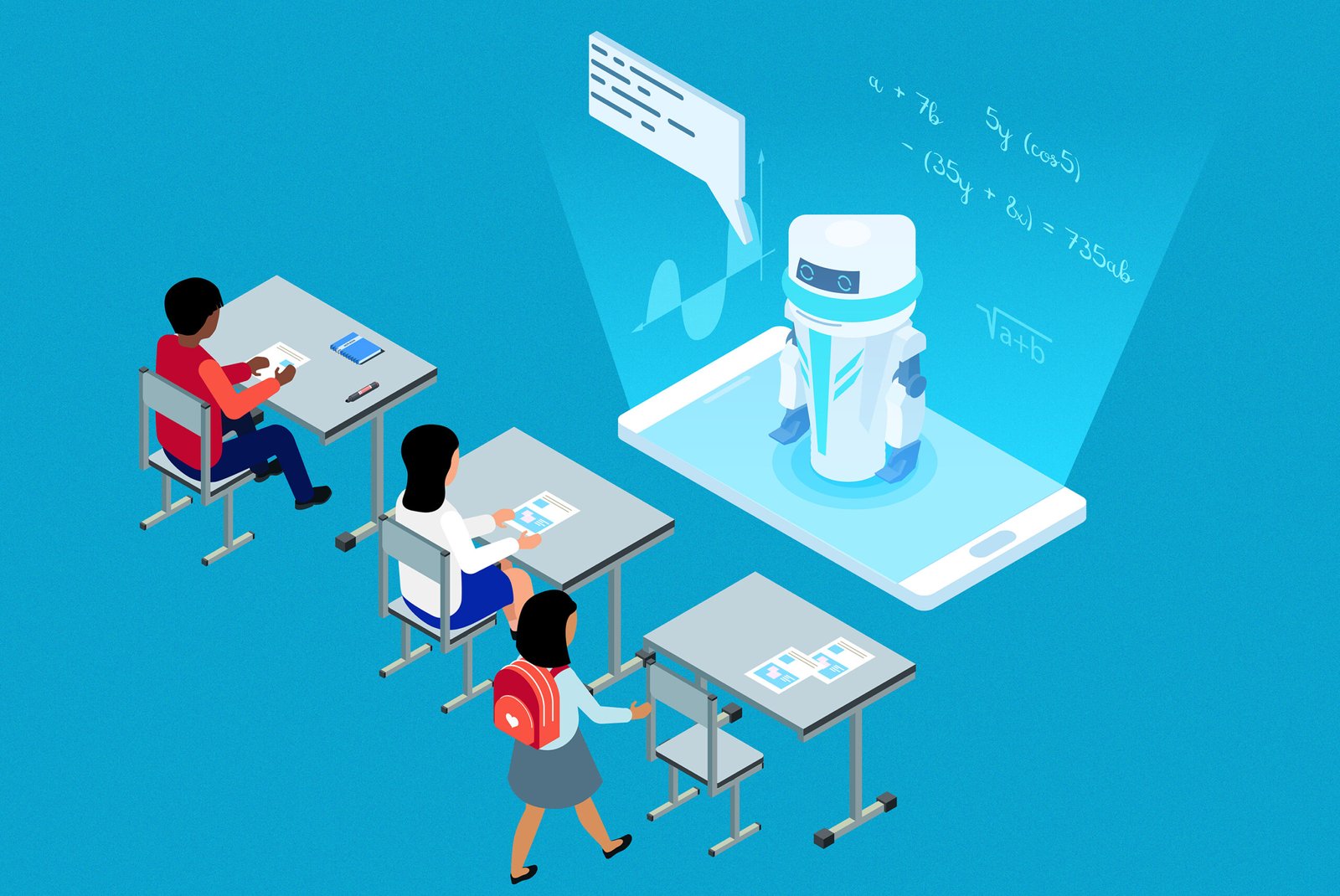Remember the fantasy of having a personal tutor, someone who understood your unique learning style and helped you through the perplexing maze of the educational system? Forget the dream, welcome to the reality! AI (Artificial Intelligence) has leaped out of science fiction to become an educational game-changer, serving not only as a personal tutor but also as a trailblazer in the education frontier.
But can AI tools really replace human tutors? The answer, as you’ll find in this post, involves a nuanced exploration of the current capabilities and future potentials of AI in the realm of education.
The Emergence of AI Tutors
Gone are the days when education was a one-size-fits-all model. With the vast leaps in AI technology, educational platforms are becoming more personalized and adaptive. AI tutors, such as chatbots and intelligent learning systems, can now tailor educational content and methodologies to match the learner’s pace and style.
While a human tutor can offer the invaluable quality of empathy and emotional support, AI tutors excel in consistency, patience, and the processing power to handle a myriad of data points. These AI systems can track and analyze a student’s performance, identify patterns, and offer feedback in real-time, providing students with a customized learning trajectory that was once unimaginable.
Customization and Adaptability
One of the key strengths of AI tutoring systems is their adaptive nature. They can adjust the material difficulty based on the student’s performance, ensuring that the learning experience is neither too challenging nor too easy. This adaptability gives students the benefit of progressing at their own optimal pace, which can significantly boost motivation and learning outcomes.
The Human Touch
While AI can excel at many things, there are certain aspects that, for now, remain firmly in the realm of human tutors. Empathy, emotional connection, and the ability to understand non-verbal cues are crucial elements of the tutoring experience that AI has yet to fully replicate. The emotional nuances of learning, support through frustration, and the intangible mentorship that human interaction provides cannot be overstated.
AI and Accessibility
AI in education also has profound implications for accessibility. For students with learning disabilities or those who simply learn differently, AI tools can level the playing field. These tools can provide a variety of formats for learning, such as audio or visual aids, which can make complex concepts more understandable.
AI also holds the promise of making education more widely available. With the scalability of digital platforms and the ubiquity of the Internet, AI-powered educational tools can reach students in remote areas or those who cannot access traditional educational facilities.
Real-Time Feedback
The instant, often automated feedback provided by AI systems is a feature that is redefining the learning process. Traditional educators, with their limited time and resources, often struggle to give comprehensive and timely feedback. AI, on the other hand, excels at providing pinpoint feedback that students can immediately use to improve their understanding of the subject matter.
This rapid feedback loop not only speeds up the learning process but also instills the habit of continuous improvement in students. Instead of waiting for a test or assignment, students can receive feedback at every step, making their learning more continuous and their understanding more solid.
The Data-Driven Approach
With AI, the learning process becomes deeply data-driven. By analyzing performance and learning patterns, AI tutors can highlight areas of strength and weakness, guiding both students and teachers in a more focused direction. This data-driven approach can lead to more efficient educational methodologies and resource allocation, resulting in better learning outcomes.
But is there a dark side to this reliance on data? Concerns about privacy and the implications of such data analysis remain hot topics. Students’ data is sensitive and its use must be carefully regulated to maintain their autonomy and privacy.
The Future of Learning
The potential for AI to revolutionize education is immense. Augmented by AI, teachers could immerse students in more interactive, personalized, and engaging learning environments. Classrooms could become dynamic spaces, where each student’s learning experience is customized to optimize engagement and knowledge retention.
The future will likely see AI take on a more expansive role in education. In addition to tutoring, it may also be involved in the creation of educational content, integrating learning with the latest scientific research, and potentially contributing to a more integrated, interdisciplinary education system.
AI as a Co-Pilot, Not a Replacement
The future of AI in education is not necessarily one where machines replace human teachers but rather one where they complement each other to create a more effective, personalized, and inclusive educational experience. AI can take on the more administrative and analytical tasks, freeing up teachers to focus on the relational and creative aspects of education that are uniquely human.
The challenge moving forward will be to integrate AI into the education system in a way that enhances the learning experience without sacrificing what makes education so fundamentally human — the relationships, the inspiration, and the shared growth.
Conclusion
AI as a personal tutor for students is not just a remote possibility; it’s a burgeoning reality. While it cannot replicate the emotional depth of human interaction, AI’s strengths in customization, adaptability, and real-time feedback make it an incredibly powerful educational ally.
It’s time for students and educators to become acquainted with this new era of educational technology. For students, it means a learning experience that is more tailored to their individual needs. For educators, it presents an opportunity to leverage AI tools for a more effective and nuanced teaching approach.
The question isn’t whether AI can be a personal tutor for students, but rather how it will transform the way we learn and teach. The potential is vast, and the only limitation might just be our own ability to adapt to this new educational landscape.
